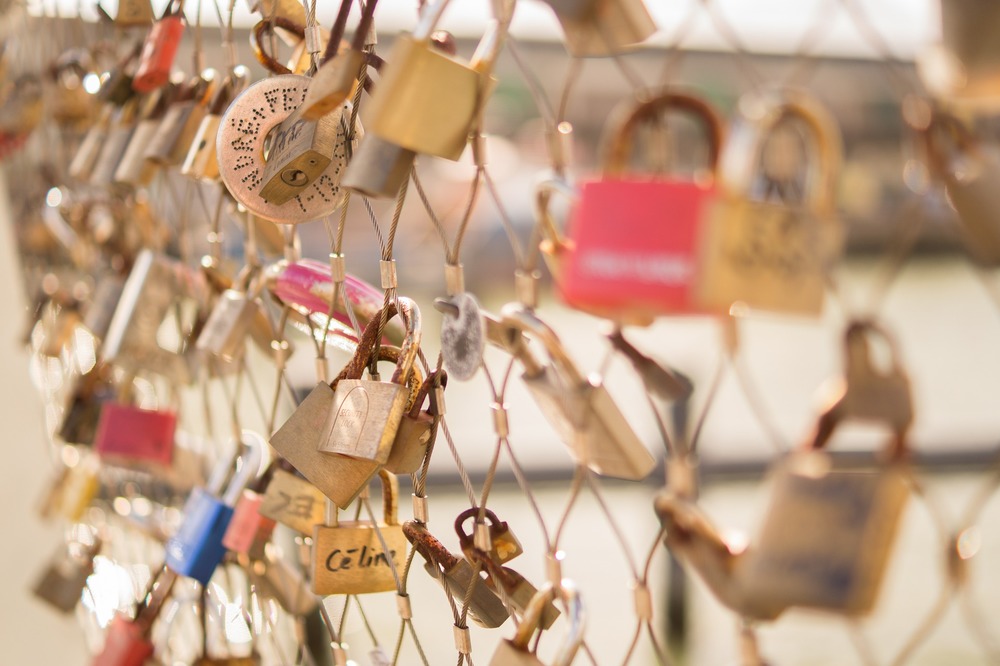A toxic relationship
A toxic relationship is any relationship that fills your life with suffering, struggle and a sense of helplessness. Some people stay in such relationships for years, having no clue how to heal them or end effectively. This article will shed some light on what you can do if the toxic relationship you’re in takes away your happiness and joy of life.

In this blog entry, you will learn what a toxic relationship is and how to know you're in such relationship. You will also find out why people enter such relationships, how to deal with the toxicity between you and your partner and what you need to do in order to make a decision either about leaving the relationship or starting to repair it.
If you live in an unhealthy relationship, it might be difficult for you to go through this article as you will need to face the painful truth about what your relationship really looks like. Maybe for the first time you will realize with such power that you are in toxic relationship. You don’t have to read the whole thing at once. Give yourself as much time as you need.
A toxic relationship is any relationship in which partners drain each other’s energy, instead of bestowing it on each other.
Instead of giving each other support, reinforcement and appreciation, they continue to clip the partner’s wings, tread on their heels and hurt them.
Such a relationship doesn’t always have to be explosive and quarrelsome. Sometimes its toxicity is subtle, hidden, implicit and difficult to detect. It may involve undermining the partner’s self-esteem and embedding in them the belief that they are worthless. It can manifest itself by a continuous invoking feelings of guilt in the other person. It is not uncommon that such psychological violence has more serious and far-reaching consequences than the physical abuse.
Toxicity in relationships is not just about romantic relationships. Many people have dysfunctional relationships with their parents, friends or colleagues. This article refers mainly to romantic partnerships, but you can go ahead and use all the tips given here with any other relationship.

Poison
Let's start with the basics. The first step is to locate the problem. What are the signs that you are in a toxic relationship?
- You give up your goals, plans and dreams on account of your partner (sometimes we do it unconsciously when deep down we know that our plans would not be welcomed by our other half);
- You stop to grow because your partner doesn’t believe in you. Instead of offering you support, he or she clips your wings and discourages you from taking new actions (perhaps because they don’t believe in themselves and are afraid that if you go forward, you will leave them behind);
- Your partner, in many different ways, implies that you are not enough the way you are. They become critical of you and put you down whenever an opportunity arises. You feel ashamed and guilty for being the kind of person you are (keeping the other person in this emotional state is usually a way of controlling them and boosting own self-esteem);
- Your partner is constantly striving to attract attention. Your feelings, opinions and needs are neglected. Each conversation boils down to what he or she feels and thinks;
- You do not feel at ease with this person. You cannot be 100 per cent yourself in front of them. You don’t feel you are free to say what you think. Consciously or not, you try to fit your partner’s expectations. You have the impression that you are walking on thin ice, never knowing what might upset them;
- Any attempts to have a calm conversation end in a quarrel, blame game and guilt-tripping.
All of this boils down to asking yourself one question - does my partner make me more or less happy?
If less, no need to worry, it's good that you are already aware of that now. You might wonder how come your relationship ended up in such a bad place. What brought about so much negativity, spite and destructive emotions between you two?
Here are some possible reasons for toxic behavior in a relationship:
- opposite personality types and attempts to enforce change on the partner to meet your expectations;
- unwillingness to maintain the relationship while putting aside the decision to end it (out of fear of loneliness, because you got used to it, etc.);
- low self-esteem and inability to cope with your own problems, while at the same time shifting the responsibility for them onto the partner (it is easier to blame someone else than to admit to your own flaws);
- inability to establish honest and direct communication of your feelings, needs and expectations as well as creating a false image of yourself to match your partner's expectations;
- the belief that with criticism, blaming and guilt-tripping you can provoke your mate unto love and receive more of their attention.
- Of course, these are just a few examples, the list of reasons can go on and on.The toxicity of the relationship may involve one of the situations mentioned above, or a combination of them. Now, stop for a moment to think about what it looks like in your partnership. What could be causing the destructive emotions that seem to pop out between the two of you on such a regular basis?
Defining the cause of trouble in your relationship will help you decide on what to do next. It is easier to work on healing the relationship if the conflicts are caused by the partners’ inability to communicate rather than by their lack of true interest, deep down in their hearts, to be together.
One way or the other
One of the most important problems for people who have entered toxic relationship is not ending it or face the challenge to repair it.
It is the inability to make a choice.
People are stuck for years, undecided and paralyzed by the fear of making decisions. They hold onto hope that the situation will somehow resolve itself. That there will be a miracle and your partner will somehow magically change, or that fate will bring about a painless ending to this relationship. No such thing is going to happen.
You need to come to terms with the fact that if you want this situation to change, you have to make a decision. You’re either in, or you’re out.
Do I want to give this relationship a last chance and work, together with my partner, towards its healing?
Or do I want to end this relationship once and for all?
As long as you can’t make up your mind whether to stay in this relationship or leave, it will be difficult for you to take any steps. Remember that no decision is also a decision. However, in this case, such decision would do you most harm. Don’t let yourself be stuck in it any longer. Now, as you are reading this article, it’s the right time to do something about it. You deserve happiness and the sooner you make the decision, the sooner you will break free from this suffering.
If you have even the slightest shade of doubt, it's worth taking the time to gain some perspective and rethink the whole situation. Being sure of your decision will provide you with strength and perseverance in further steps.

You don’t need to fear making the wrong decision. If, on one hand, you choose to fight for this relationship and it turns out that it was a bad idea, you'll be certain, more than ever before, that it's time to give up on it. On the other hand, if you decide to end it and after some time you realize that you can’t live without that person, it will become clear to you, more than ever before, that it is worth doing everything to save this relationship.
So, what can you do to help yourself make the best decision possible at that time?
Break
As long as you are entangled in a web of mutual reproaches, expectations, feelings of guilt and other destructive emotions, you are, in fact, in no position to make an informed decision.
You need to get some distance, catch your breath, create space for yourself. You need to take some time to reflect on your feelings, needs and expectations in peace, without quarrels and toxic conversations.If you want to make a good decision, it’s best to take a break from your partner, for at least two weeks (the longer, the better, but, of course, within reason). Why so long? Because before you start thinking about your relationship at all, you need a few days to cut yourself off from all the destructive emotions that have become part of everyday routine.
How can you arrange such a break? There are several options:
- you can take a getaway trip to another city and go on a holiday, if you can allow yourself a short time off from work;
- rent a temporary apartment and move out (or suggest doing so to your partner);
- ask friends or family to take you in for a while;
- do what you can to spend as much time as possible out so that you see your partner as little as possible (and even when you do see him, avoid any contact). Explain to them that you need some space for yourself and that you need to avoid any interaction with them for some time.
- Think about it now and decide which option will suit you best.I recommend the first two suggestions. I am aware that they are the hardest to put into action, but remember how important decision you are about to make. It is your future that is at stake. Therefore, it is worth going to any lengths just to be able to get some distance and ensure yourself the right conditions for making this decision.
Taking a beat from your relationship is a good idea even when you are sure that you don’t want to leave your partner. Getting perspective will allow you to understand what exactly isn’t working in your relationship and how to fix it.
Healing toxic relationship
Once you have decided on how you will arrange for your break, here are some suggestions on how to play it out:
1. At first, give yourself a few days to regain your balance. Pamper yourself, go for walks, read good books, listen to some music. Clear your head. Don’t ponder too much over your relationship - there will be time for this later. Relax physically and mentally.
2. Over the next few days, try to look at your relationship objectively, as if you were an independent observer. What advice would you give yourself if you were a stranger watching your relationship from a distance?
3. Imagine possible courses of action. Allow yourself to sit back comfy for half an hour, with your eyes closed, ask yourself the following questions and envision in your mind what might happen.
- What would our future look like if we attempted to heal a toxic relationship?
- What would happen if we managed to repair it?
- What would happen if we failed?
- What would my future look like if I ended this relationship?
- What would happen if I couldn’t find another partner for a long time?
- What would happen if I quickly fell in love with someone else?
- What do I need and what do I want from life? What do I expect from a relationship?
4. Break free from mental attachment. Think about the beliefs listed below and consider which of them constitute your way of thinking:
- I’m sure he/she will change and, in the end, we will be happy;
- It's all because of me;
- Losing this person is worse than living solo;
- Loneliness is a terrible thing;
- True love involves suffering;
- If I end this relationship, I will never find anyone again.
Mental attachment is the reason why so many people are stuck in toxic relationships, even when they see in black and white that their relationship is hurting them. When you hold onto the above beliefs, you force yourself into passivity.
Of course, some of these beliefs can be true. However, in most cases, they all tend to be false and inhibit your actions. Before you decide to end or repair your relationship, it's good to let go of these beliefs, and base your judgment not on fear, but on what you really want.
Think about how you would view this relationship if you did not believe in any of these statements.
5. Put aside all your duties and pressure. Forget about what your partner, parents and friends expect from you. For these few days of your break, clear your head from what is socially considered as "right" in such situations.
It's important that your decision is not based on "I must break up with him/her," or "I must work on this relationship," but on "I want to break up with him/her," or "I want to heal this relationship." That’s why, try to focus only on your emotions, needs and desires. What do you really want from life? Does your relationship help you or stop you from achieving it? What is your gut-feeling telling you?
6. Finally, make the decision. At this stage, it should already be clear to you what you want to do. Write it down in capital letters and think about how you will put this decision into action.
Even if you still don’t know what to do... still, make the decision. A wrong decision is better than no decision at all. As I said earlier, the unnecessary attempt of a breakup will let you understand that you don’t want to live without that person, whereas the futile efforts to save the relationship will quickly show you that it is, in fact, better to split up.

What if you are in no position to take a break from your relationship at the moment because it is impossible to avoid everyday contact? You can as well plan a break that you will take after a while and, in the meantime, taking into consideration the following tips:
1. Cut down on your daily conversations as much as possible and be determined to nip in the bud any discussions that may lead to ugly arguments, even if you feel the urge to vent your spleen in front of your partner;
2. Don’t surrender to emotional manipulation. Your partner will probably try to guilt-trip you. This is their way of controlling you. Don’t let them make you believe something that isn’t true;
3. Be aware of the tricks your partner uses on you and bring them into his/her view. Don’t let yourself get caught up in arguments, instead, expose his manipulations. Help him become aware of his toxicity;
4. Strive for a healthy and calm conversation. Make the necessary arrangements with your partner. Agree on a specific date and time of the day. Set a few rules beforehand , e.g. we finish the conversation when it turns into an argument, we don’t judge the other person, we speak only about our own feelings, we don’t interrupt each other, etc. When someone breaks one of the rules, stop the conversation and arrange for another date.
5. Reach for the support of a relationship coach or psychologist specializing in this field;
6. Take greater care of yourself in this difficult time. Take the most of any opportunity for a me-time. Take a walk, read a book in the park or in a cafe, go see other people;
7. After you regain your balance and get some space for yourself, follow the exact same suggestions that I presented above, regarding taking a break from your partner.
Once you know what to do, get to action. Don’t wait any longer. It's your life that is at stake. And your happiness. You are too valuable to have your time wasted in a toxic relationship.
What if you are the toxic party in this relationship? Ask your partner which behaviors make him feel bad, how exactly these behaviors influence him and what he thinks about them. Ask him to let you know every time you act this way. Look for different, more constructive and less manipulative reactions and work on changing these toxic behavioral habits.
Share your story, challenges and doubts in the comments section. This is a life area, where mutual support is particularly important - and this is where we can give it to each other.
If you need guidance on how to heal a relationship or how to finish it in a reasonable way, be sure to let me know in the comments.

